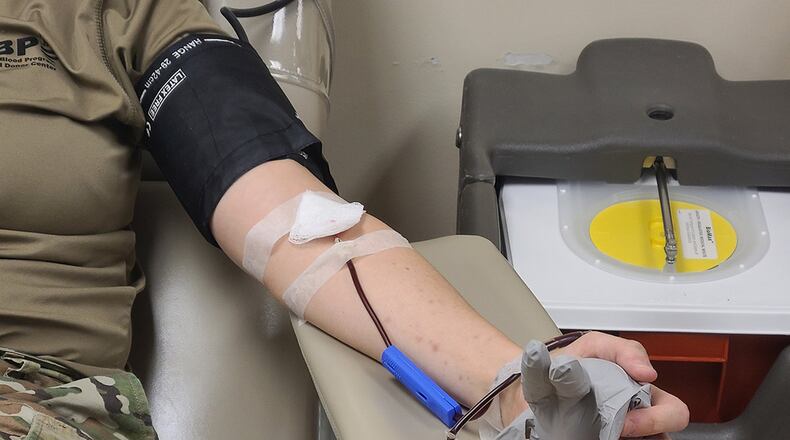“Basically, if they donate blood, they will find out if they have ever had the COVID-19 virus,” added Flanagan.
Those who donate blood and have COVID-19 antibodies discovered during the testing process will be notified and asked to participate in the CCP program. If donors are interested in donating convalescent plasma regularly, they will be added to the BDC’s CCP donor roster.
Capt. Kevin Rhee, chief of Blood Services, said that although convalescent plasma is in the experimental phase and isn’t a proven COVID-19 treatment drug, research has shown that it is a viable treatment option for critical COVID-19 patients.
The BDC team members said that they welcome potential donors who meet eligibility requirements, especially, those who have recovered from COVID-19 or were previously suspected of having the disease.
Rhee added that donors who have previously tested positive or were previously suspected of having COVID-19 must also be cleared by a physician and public health, and they must be symptom free for 14 days, meaning those donors must have a complete resolution of their symptoms before being eligible to donate blood.
Rhee also said that those donors must also have documentation of that clearance. The BDC team can check donors’ medical charts to see if previously COVID-19 positive donors have been cleared by a physician at a Department of Defense facility, but those tested outside of a DoD facility must bring in supportive documentation.
The new program is a result of the BDC joining the Department of Defense’s effort to collect CCP units to use for the treatment of COVID-19 patients. There are more than 20 Armed Services Blood Program centers around the world supporting this effort.
The BDC team said that the DoD wants its Armed Services Blood Program centers to collect a total of 10,000 COVID-19 convalescent plasma units by the end of September.
Veronica Lukey, BDC program manager, said that means, in addition to its normal blood product collection goals, the BDC has been tasked to collect 77 CCP units per month, along with two other Air Force BDCs, on behalf of the Air Force to help the DoD reach its overall goal.
To assist the BDC team with accomplishing that task, they will receive new equipment that will allow CCP donors to donate a little more frequently than those who donate whole blood.
Lukey said, the BDC team is in the process of getting apheresis machines so that people who have COVID-19 antibodies and decide to join the CCP roster can donate just plasma.
By using an apheresis machine, donors can donate every 28 days instead of every 56 days.
The machines allow donors to donate plasma only and not whole blood by separating plasma from red cells during the collection process instead of after.
The BDC team added that donors interested in the CCP program do not have to wait for the apheresis machines to come in before they can participate. If they are eligible and want to donate, they can donate whole blood until the team receives its apheresis machines.
Another way the BDC is hoping to see an increase in those eligible to donate is through changes to its donor eligibility requirements.
Donors who were ineligible or deferred in the past due to travel and mad cow disease location restrictions may now be eligible.
Rhee said the BDC has recently been approved to implement those changes to its donor eligibility requirements.
Lukey added that the Food and Drug Administration has already approved the changes that the BDC will implement. For example, a lot of travel areas that had a 12-month deferral will be lowered to three months and several areas that were initially banned due to mad cow disease have been removed.
These changes should help boost the BDC’s donor population.
At a minimum, to be eligible to donate whole blood, potential donors must be in good health and feeling well on the day of the donation; be at least 17 years old, at least 110 pounds and haven’t donated in the last 56 days. The BDC staff will screen potential donors prior to them donating blood.
For general blood donor eligibility information, go to https://www.militaryblood.dod.mil/Donors/can_i_donate.aspx.
The BDC team encourages those interested in donating to make an appointment using its online appointment system: www.militarydonor.com.
The team is also available to answer questions and make appointments by phone. Interested donors should call 937-257-0580.
About the Author
